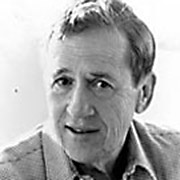
From MIT professor Leo Marx, who was a student at Harvard University in the 1930s.
In those years many students were drawn to the Left. As an undergraduate I was active in the Harvard branch of the left-wing American Student Union and the editor of its magazine, the Harvard Progressive. For a year or so I also attended meetings of the Young Communist League. At that time, in fact, student and faculty intellectuals who were not anti-capitalist and anti-fascist probably were in a minority. The tenor of 1930s Left discourse, as I remember it, is captured by this 1935 manifesto, signed by many prominent, mainstream, artists and writers.
Source: Leo Marx, professor of American cultural history (emeritus) at MIT. Boston Review, December 2003/January 2004.
‘The capitalist system crumbles so rapidly before our eyes that . . . today hundreds of poets, novelists, dramatists, critics and short story writers recognize the necessity of personally helping to accelerate the destruction of capitalism and the establishment of a workers government.’
Virtually all of the scholars involved in founding American studies at Harvard were of a liberal or outright Left persuasion. This meant being anti-capitalist or at least highly critical of the capitalist system. Indeed, the least radical among them—members of the old-line English and history departments like Howard Mumford Jones, Kenneth Murdock, and Arthur M. Schlesinger, Sr.—as well as graduate students and young instructors like Daniel Aaron, Edmund Morgan, and Henry Nash Smith were left-tending New Dealers. Granville Hicks was a Communist, and to his credit, Daniel Boorstin, my sophomore-year tutor, later the Librarian of Congress, warned me that he was a member of the Communist Party; my teacher and friend, F. O. Matthiessen, was an active socialist but also a Christian, neither a Marxist nor a Christian socialist (labels he rejected but that are still attached to him). Perry Miller—my junior- and senior-year tutor and Ph.D. thesis supervisor—was sympathetic with the neo-Calvinist left viewpoint of the theologian Reinhold Niebuhr; he too was a committed New Dealer. So were Tremaine McDowell of Minnesota as well as George Rogers Taylor and Colston Warne of Amherst College—post–World War II founders of their respective American studies programs in which I subsequently taught. My retrospective impression is that the view of the United States held by most of the founding generation of American studies scholars embodied much of the Left’s radical skepticism—not to say hostility—toward the capitalist system.
Unfortunate that left-leaning folk, to at very least respect their human state (not so much their “humanity”) eventually, somewhat after ascending power and control over the societies they survive within, are the first and foremost official statist destructors of free human thought, free human choice, and any vision other than their own. Alas, America may have had its day and the very wealth and potential it afforded so many is now at risk and being chipped away by the likes of the socialist miasma that has found its way to countless brains.
It’s a positive sign to me that the US bounced back from the New Deal era economically and somewhat intellectually, given the extent of the communist intellectuals named here. What intellectual forces enabled that? Can we learn from what happened to enable a major intellectual turnaround now?